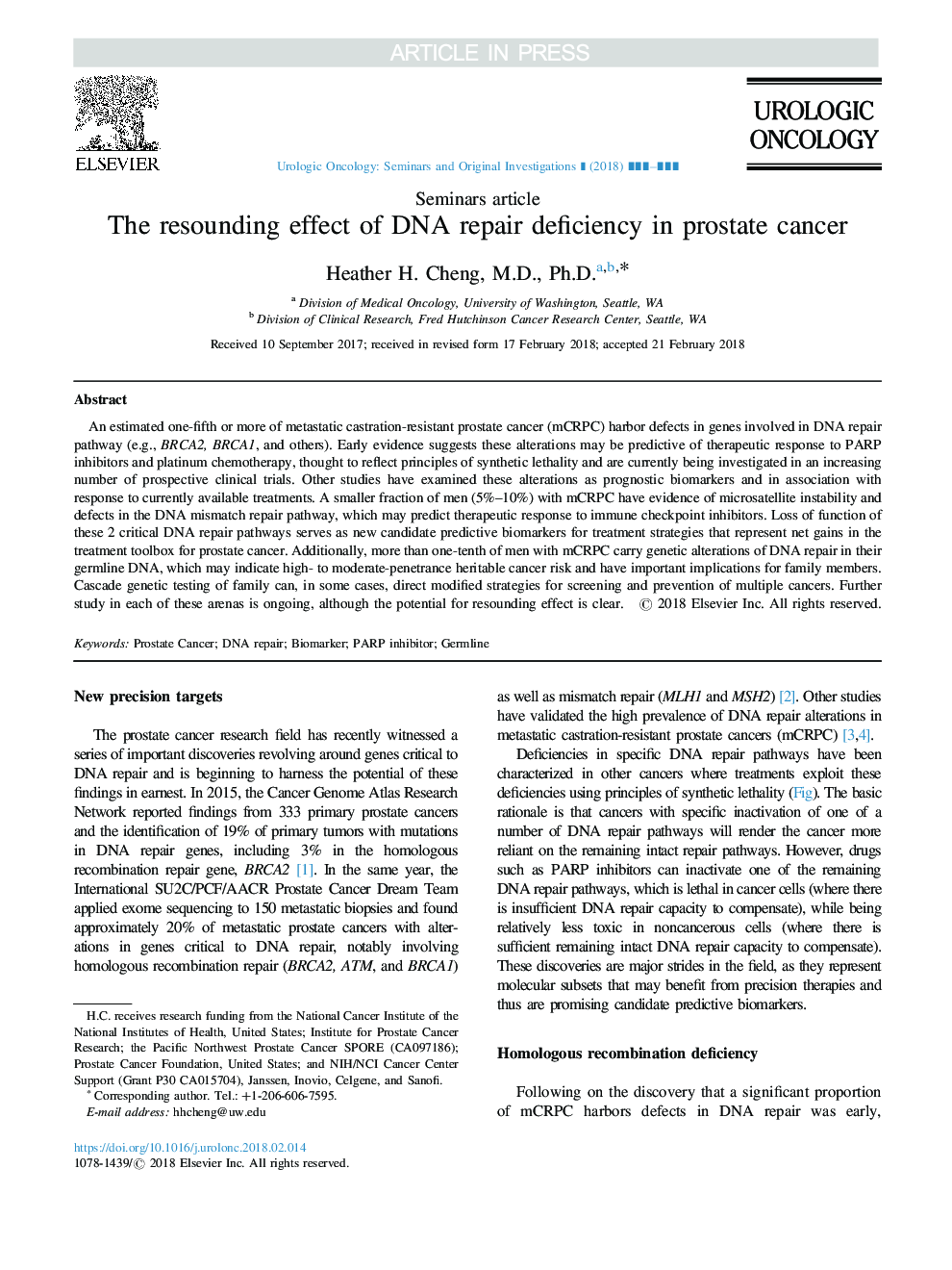| Article ID | Journal | Published Year | Pages | File Type |
|---|---|---|---|---|
| 8789937 | Urologic Oncology: Seminars and Original Investigations | 2018 | 4 Pages |
Abstract
An estimated one-fifth or more of metastatic castration-resistant prostate cancer (mCRPC) harbor defects in genes involved in DNA repair pathway (e.g., BRCA2, BRCA1, and others). Early evidence suggests these alterations may be predictive of therapeutic response to PARP inhibitors and platinum chemotherapy, thought to reflect principles of synthetic lethality and are currently being investigated in an increasing number of prospective clinical trials. Other studies have examined these alterations as prognostic biomarkers and in association with response to currently available treatments. A smaller fraction of men (5%-10%) with mCRPC have evidence of microsatellite instability and defects in the DNA mismatch repair pathway, which may predict therapeutic response to immune checkpoint inhibitors. Loss of function of these 2 critical DNA repair pathways serves as new candidate predictive biomarkers for treatment strategies that represent net gains in the treatment toolbox for prostate cancer. Additionally, more than one-tenth of men with mCRPC carry genetic alterations of DNA repair in their germline DNA, which may indicate high- to moderate-penetrance heritable cancer risk and have important implications for family members. Cascade genetic testing of family can, in some cases, direct modified strategies for screening and prevention of multiple cancers. Further study in each of these arenas is ongoing, although the potential for resounding effect is clear.
Related Topics
Health Sciences
Medicine and Dentistry
Oncology
Authors
Heather H. M.D., Ph.D.,
